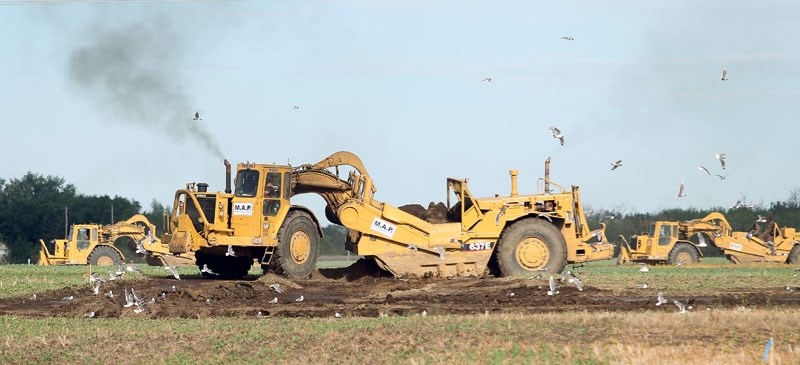St. Albert will need to separate itself from the rest of the pack if it wants to bring in more industrial investment, the city’s economic development director said.
On Monday night city council received a report on just how it can do that as Guy Boston laid out three possible ways St. Albert can make itself more appealing to non-residential developers.
Those three options, which will come back to council for a vote in June, include allowing payment of property taxes in increments, offering grants or rebates for upgrades or developments of an environmentally friendly nature and allowing business to pay cash in place of setting aside parcels of land for municipal reserve.
“This more or less levels the playing field with our competitors,” Boston said.
All three options, laid out in the agenda report, are based on incentives already offered by the city, offered by other municipalities or have been suggestions from industry.
Boston said the idea of taking cash in lieu of land on new developments has come straight from developers who have asked about possible incentives in St. Albert.
“There are some very recent examples where there have been requests of developers of this option,” Boston said.
Developers in St. Albert are required to set aside approximately 10 per cent of the total land for municipal reserve, which is then used for parks, school sites or future city uses. If the city were to accept cash instead, administration would want it to be used for parks and recreation development.
Administrators recommend that this option be extended only to non-residential developers.
“The suggestion is we only utilize this in non-residential development,” said Curtis Cundy, general manager of planning and engineering. “This is not something we recommend be utilized for residential development.”
There are other communities that offer some kind of property tax incentives for non-residential development, said Boston. Municipalities like Bruderheim and Elk Point offer complete tax exemptions for up to three years on new or significantly redeveloped buildings, while communities like Vulcan allow new industry the option of paying percentages of the total tax bill over three or five years.
“What this does is allow the proponent to benefit from having a reduced tax burden as they ramp up business,” Boston said.
Offering grants or rebates for adding or using environmentally friendly technologies or fixtures would support the city’s botanical arts brand, Boston noted. The city also offers similar programs for the residential sectors, such as 2012’s rebates for installing low-flow toilets.
Boston added that existing businesses could be offered similar incentives if they redevelop their buildings.
“Industrial land developers would be the target of some of these incentives. It could potentially be directed to businesses already here if they want to expand,” Boston said.
The draft incentives will now be sent for discussion to the standing committee of finance, which consists of all members of council. It will also be sent to the St. Albert economic development advisory committee for comment before returning to council in June.
Charlene Zoltenko, a member of the St. Albert economic development advisory committee, said the group will strike a subcommittee to examine the proposed incentives, but hasn’t yet reviewed them.
Coun. Malcolm Parker, a former chair of the committee, said he was happy with what Boston proposed.
“We’re going down a path here to try and really provide things that will attract people to want to set up a business and develop in St. Albert,” Parker said. “This is one tool that will help facilitate that.”
Parker said such incentives don’t have to be limited to financial incentives, saying there are other approaches the city can take to attract business.
“I think what we have to do is get everyone involved,” Parker said. “I’d like to include landowners as part of that. What can we do to work with them?”




